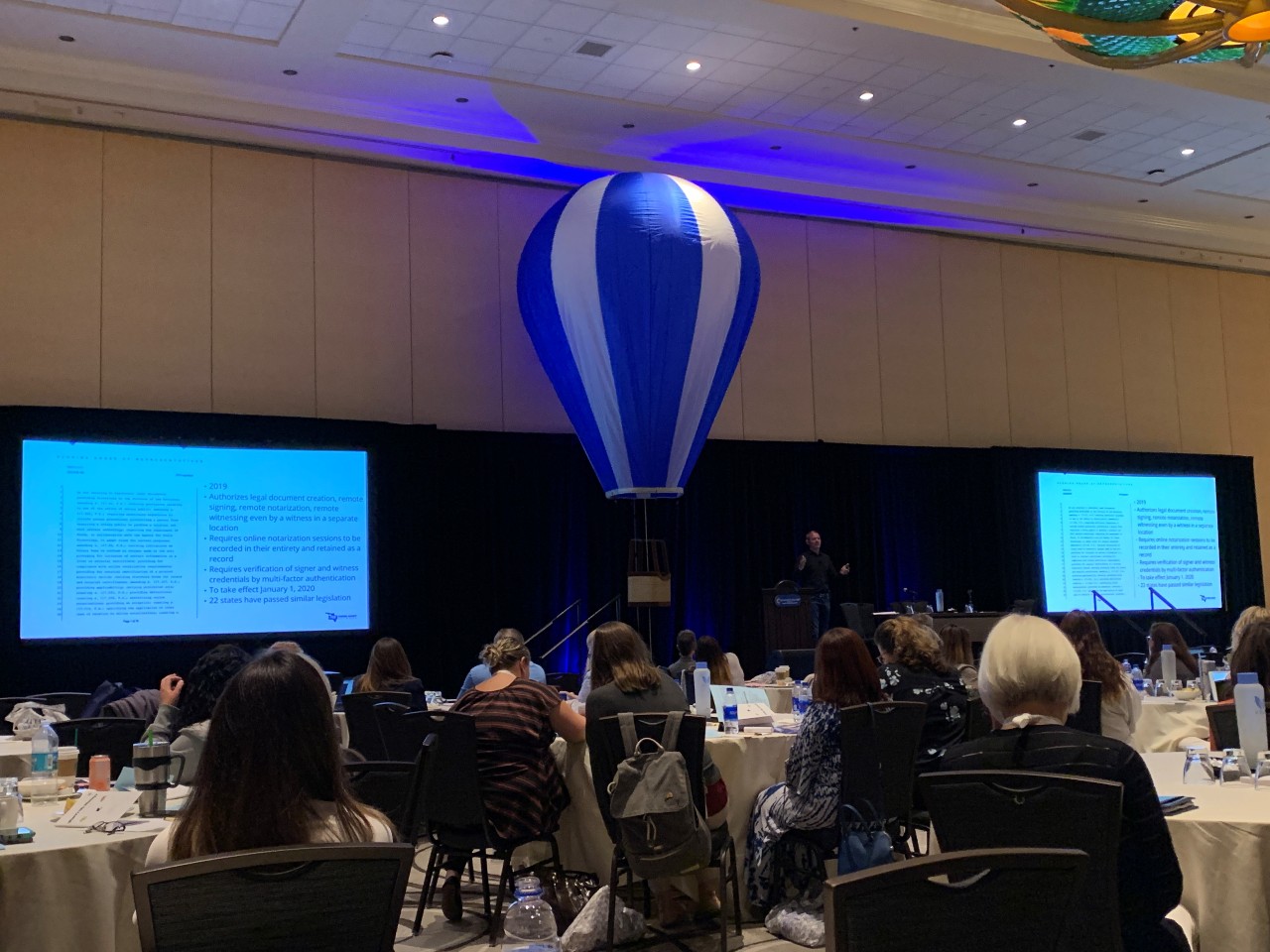
Surveys, also called boundary or land surveys, map out your real estate property, show its boundary lines, improvements made to the property, and all access to the property.
1. UNDISCLOSED RIGHTS AND EASEMENTS
You may own your new home and its surrounding land, but someone else might have a right to use a portion of your property. A survey will show physical evidence of the rights of others to use your property for access, parking, utilities, and other situations.
2. UNDISCOVERED ENCROACHMENTS
A survey may be the only way to tell if a third party holds a claim to part of your property because their improvements, such as a garage, fence, or swimming pool, are on your land.
3. IS THE PROPERTY BUILT ON THE CORRECT LOT
It may seem impossible, but sometimes a house is built on the wrong lot. A survey provides peace of mind by showing the exact location of the house you are buying.
4. KNOWING THE SIZE OF YOUR PROPERTY
A survey shows the exact dimensions of the property’s boundary lines and how much land is included within those lines.
5. FUTURE ADDITIONS
Many residential plotted lots can have building restrictions, which could prohibit you from building close to the boundary lines. If you are thinking of building future additions on your property, a survey can help determine if the lot is right for both your current and future plans.
These are a few reasons why you should purchase a survey when making one of the largest investments in your life. We've created a downloadable PDF of this information for you to keep or share.
At Florida Agency Network, we are always available to answer questions about your survey or your closing. Feel free to contact any one of our offices with any further questions you may have.

Every real estate agent understands that buying a home is overwhelming for many clients. There's a mountain of paperwork to sign and different fees associated with the closing process. All of these things can confuse even an experienced buyer.
Title insurance, or an owner's title policy, is often misunderstood by home buyers at closing. Buyers, especially first-time home buyers, look to real estate professionals as experts in the industry. It's important to be the advisor to your clients and help them understand the value of an owner's title policy and the risks that can arise without it.
Title insurance, or an owner's title policy, is a policy that protects the home buyers’ property rights. For the same reasons that the bank requires a lender’s insurance policy, a home buyer obtains an owner’s title policy to protect their legal rights to the property.
Here's an example: Your client purchased a new home from a builder, but the builder failed to pay the roofing company. That roofing company wants to get paid, so it files a lien against the property. Without an owner’s title policy, your client is responsible for paying that debt. This is just one example of how an owner’s title policy protects a home buyer from a variety of significant risks, such as unknown heirs, illegal deeds, forged documents, and much more. With an owner’s title policy, a buyer's property rights are protected while they own the property.
The good news is that an owner’s title policy financially protects home buyers for as long as they own the home. For Florida buyers, the price of an owner's title policy depends on the sales price of the home. Florida's promulgated rate is $5.75 per thousand, up to $100,000, and $5.00 per thousand thereafter, up to $1 million.
The party that pays for the owner’s title insurance policy varies from state to state. In Florida, the seller typically picks and pays for the owner's title policy. However, that can change depending on which county/area the property is located.
Fees can add up during the closing process, but this one-time fee gives home buyers peace of mind. After all, the home may be new to your buyer, but every property has a history.
Each state regulates its title insurance costs, and the Consumer Financial Protection Bureau (CFPB) regulates closing and settlement services to protect consumers from unfair practices. Established in 2011, the CFPB educates consumers about making smart financial decisions and holds companies accountable for any abusive or discriminatory procedures.
Title insurance can be confusing and seem like "just another expense" during the closing process. But, what's the price of your buyer's peace of mind? As a real estate professional, educating yourself and your clients on title insurance, the protections it provides, and the risks of going without it is vital.

We all remember the classic tale of Romeo and Juliet. It was a story of love, tragedy, and (SPOILER ALERT) a SERIOUS lack of communication. While tragic in the end, it’s a great story to recall around Valentine’s Day, and it's one that can be used to help your customer make sure their story has a better outcome.
Sometimes even a star-crossed couple will make the largest decision of their lives – the decision to purchase a home. While many couples will pool their assets, get a joint mortgage, and take title together, sometimes that’s not possible or one spouse already owns a home before marriage. In pre-marriage ownership scenarios, if one spouse solely owned the home before the marriage, their new, non-owner spouse will need to sign a deed and/or mortgage on the property for the owner spouse to sell it or mortgage it - unless they get a divorce prior to the sale. (Hey, Romeo & Juliet WAS a tragedy after all!)
So, in Florida, even if a spouse is not going to be on the title or a promissory note to repay a mortgage, they still need to sign the deed when selling the property or getting a loan. That's because, unlike the Capulets and Montagues, today’s couples have something that Romeo and Juliet didn’t – the Florida Constitution.
Article X, section 4, of the Florida Constitution, also known as the Homestead Exemption, is a powerful law that offers many benefits to Florida citizens. You may already be aware of the tax benefits of declaring your "homestead" that are outlined in section 6, but section 4 has some other, lesser known, and noteworthy protections, including:
Section 4 helps guarantee that a Florida homeowner cannot be forced to sell their home to repay a debtor in most situations outside of mortgage repayment, mechanical liens, and outstanding property taxes. It also allows tax protection when the couple sells their home and intends to use the profits to buy another home.
To protect as many citizens as possible under these laws, married couples are required to sign the deed to the property when they sell the home. This means that if the Capulets had ever convinced Juliet to leave the Montague she married, she could not have sold their home without Romeo knowing about it. Also, neither she nor Romeo could leave the home to a minor child in their will, without the other party waving at least a portion of their rights.
So, while we are sure that a rose by any other name would smell as sweet, make sure your customers understand why both spouses' name should be on any deed once married and stay tuned for more tips to help your customers to come as we move further into the year.
Until then, parting is such sweet sorrow.....

If you’ve been living under a rock, you probably haven’t heard the latest buzzword in the real estate industry: iBuyer. Even if you have heard about it, you may still have some questions or concerns.
What is an iBuyer? Is it the right choice for sellers? Are iBuyers taking over real estate agents’ jobs? I-Buy who?
No fear! We’ve gathered all the information you and other real estate agents need to know about iBuyers.
WHAT IS AN IBUYER, & HOW DOES IT WORK?
iBuyer services take a modern, technology-based approach to the real estate market and those looking to buy or sell homes. iBuyers use a strategy similar to companies like “We Buy Ugly Houses” by giving you the option to sell your home quickly for cash. However, unlike the “We Buy Ugly Houses” approach, iBuyers focus on homes in good condition. Typically, an iBuyer isn’t looking to flip a property or take on anything that needs extensive repairs.
To get started with iBuyer, a seller visits the website, plugs in the address of the home to be sold, and fills out a questionnaire about the property. Within 24 -48 hours, the seller receives an offer on the home. iBuyers base these offers on technology like the automated valuation model (AVM) to get the quickest “comps” for the property. From there, a seller can decide to move forward with the iBuyer and set a closing date.
PROS TO USING AN IBUYER
According to realtor.com data, the median home spends 58 days on the market. However, selling to an iBuyer can take only a handful of days (or longer if the seller prefers). This arrangement would be ideal for an out-of-state property inheritance or a sudden job change resulting in a quick change of living arrangements. It’s also perfect for sellers who just wish to have the control of the time frame. Let’s face it. Selling a home can be somewhat of an inconvenience. Between keeping your home tidy, having the listing agent come in to stage, and leaving at a moment’s notice for a showing, selling your home can become a hassle, and iBuyers can help decrease the time a seller has to deal with these stressors.
When selling with an agent, there’s a certain level of uncertainty. Potential buyers could back out for different reasons, at which point the seller and listing agent are back at square one. When selling with an iBuyer, though, transactions almost never fall through. The only problem a seller may run into is getting a lower appraisal than expected, which may result in a lower offer from the iBuyer.
CONS TO USING AN IBUYER
While convenience is nice, a seller will pay for it. Typically, iBuyers charge a service or convenience fee that can range from 6-9.5% or more. In fact, one MarketWatch study of 26 home sales to iBuyers found that these sellers average around 11% less than owners who sell to a traditional buyer. Granted, traditional home sales have the 5-6% commission fee, but a recent study from Collateral Analytics found that home sellers will pay an average of between 13% and 15% more in fees to an iBuyer than they would to a traditional listing agent.
Currently, iBuyers are in select major markets only. And while iBuyers are expected to expand, they’re not something available to every home seller. There are some iBuyers that are even more selective than others about buying homes and the condition of each home.
HOW TO STAND OUT TO POTENTIAL SELLERS
For the home seller who’s on the fence about whether to use an iBuyer, you must show them the value of using a listing agent. If a potential seller wants to get as much value as they can for their property, remind them part of that value is the expertise you bring to the process. An iBuyer can’t put a price on the beautiful ocean view or the impeccable 19th-century hardwood floors of a home, but a listing agent can and knows how to use those unique and sometimes intangible selling points.
A great agent knows the amount of work that goes in to preparing comps, creating a marketing strategy, staging the home perfectly, communicating and negotiating with potential buyers, and so much more. Communicating this value is key to putting yourself above an iBuyer.
There is something about a listing agent who’s transparent and helpful to a seller that ensures agent security. Educating your seller and consumers will help them understand the value of each option and give them the opportunity to choose what is right for them. Not every seller will want to use an iBuyer and some won’t want to use a listing agent. Every seller is unique. However, giving consumers their options builds trust with them, and it’s another point on your scoreboard.
What good is all this information if you can’t physically show a real-world example based on their own situation. Our free FANAgent ONE app gives agents the opportunity to compare a potential seller’s net profits with a click of a button. With the iBuyer Comparison Calculator, agents can plug in the information and calculate an instant comparison to show their seller.
FINAL THOUGHTS
New technology and processes will always shake up any industry. iBuyers are simply one of these “shake ups.” As time passes, consumers will become more educated on the differences between iBuyers and traditional selling techniques, and not every seller will want to use an iBuyer.
Remember these words: DON’T PANIC.
iBuyers, such as Opendoor, Offerpad, Zillow Offers, and others, are expanding into major markets rather quickly. However, iBuyer transactions make up for a small percentage of real estate transactions. In 2018, 620k homes were sold to iBuyers, compared to 5.5 million homes sold without iBuyers. In fact, Rob Barber, CEO at ATTOM Data Solutions, a nationwide property database, predicts iBuyers will only account for about 15% of the real estate transactions in the long run.
So, don’t panic! There is still value and will always be value in a seller hiring a listing agent.
What’s one way you can communicate the value of using a listing agent today?

Closing on your new home can be both exciting and confusing. There are many factors to consider throughout the process. One item to consider is how you’ll hold the title of your new Florida home. Buyers can easily overlook this detail during the closing process, which can be detrimental if you decide to sell your home.
Your title agent can answer general questions or direct you to their real estate attorney to provide more information and answer questions. Here are the ways for you to hold title to real estate in Florida:
For a single, unmarried home buyer, this option is the most popular way to hold the title to their home. It’s simple and straight forward. It just means the title will be held solely under their name. Married individuals can hold title as sole ownership as well. For example, with an investment property, one individual may not want any ownership in the property. In this case, that spouse will have the Deed drafted for the property showing only one person holding the title. With this option, you may not receive any special tax breaks or other advantages of holding title in sole ownership. If the sole owner dies, any property held this way may be subject to probate court proceedings, which cost money and takes time.
With this option, each spouse owns an equal portion of the property for as long as they are both alive and legally married. Each spouse’s interest passes to the other upon death. This option also has some level of protection, in that a judgement against one spouse may not attach to the property.
Each tenant owns an undivided pro rata share of the property and must take ownership at the same time. Also, each tenant will have a right of survivorship, so if one of them passes away, their share will transfer to the surviving tenant (or tenants). The will of the tenant who passed away has no impact on the joint tenancy property. Joint tenancy also allows the surviving tenants to avoid probate expenses and delays when one of the tenants dies. The surviving tenants need to record an affidavit and provide a death certificate to clear the title
If there are two or more buyers, the individuals can opt to hold title as tenants in common. Tenancy in common is a popular option for individuals who aren’t married or are investors, friends, or family. As tenants in common, each tenant (individual) owns a certain percentage of the property, typically equal shares among the owners. In the event any owner should pass, their interest will vest in their estate or heirs at law. Their interest will not pass to survivors. The property will be subject to probate court expenses and delays.
Choosing the most beneficial way to take title is often overlooked by buyers. However, this step is critical to your closing transaction and situations later down the road.
It’s crucial to speak with a real estate attorney when deciding how to hold title on your Florida real estate property. We have in-house attorneys with years of experience in Florida real estate. By choosing to close with any of Florida Agency Network’s title agencies, you and your agent have access to those attorneys, and many more resources throughout your closing transaction.

As technology progresses, title agents must stay up-to-date on trends and advancements – or risk getting left behind. At FAN, we have embraced the digital age and are helping title agents across the State of Florida learn the ins and outs of title closings in this digital era.

Earlier this month, our CEO, Aaron Davis, led a presentation at a conference for licensed title agents at the Gaylord Palms Conference Center in Orlando with the aim of providing resources for title agents to get ahead of the game on upcoming legislation and the changes that will soon sweep the industry.
At the conference, attendees enjoyed learning more about the various types of eclosings available. They were also educated on the different types of eClosings, including hybrids, in person, and RON, or Remote Online Notarization, and discussed numerous digital closing topics, such as:

The attending agents were able to earn CE credit as a result of their participation and are now better prepared to transition into the era of eClosings and remote online notarization.
How are you and your team preparing for the upcoming legislative changes? Are you prepared to offer eClosings and accommodate closers who wish to utilize RON during their closing process? If not, you can now request a course from FAN to better prepare you and your agents before the New Year. Email us now to find out more information or to schedule your course.

As a real estate agent, leads never take a day off. September is Realtor Safety Month, and we want you to keep safety a priority when meeting with potential leads & clients. According to the National Association of REALTOR® 2018 Member Safety Report, 33% of real estate professionals experienced a situation that made them fear for their safety. Do not become complacent with your safety!
Above all else, trust your instincts! If something doesn’t feel right do not hesitate to cancel a showing, open house or meeting.

In a world full of left-swipe worthy businesses, it’s difficult to know which title insurance company to choose for your transaction. Before you swipe right and do business with the wrong title insurance company, here are some things to consider before you choose your perfect match in a title company.
We see it time and time again, a title company seems to pop up overnight and is ready to do business. However, can you trust the work that is being done throughout your transaction? How do you know your private information is protected?
Find out how long the title insurance company has been doing business. A title insurance company that's been in the industry for a longer period knows the ins and outs and can speak to common questions or issues that come up, with ease. A title insurance company’s longevity shows efficient and effective processes in place. And with experience comes stability and peace of mind for all those experiencing the closing process. That leads to the next point.
Life can get busy. Going out of your way to get to, or handle anything thing for your closing can become a hassle. Look for a title insurance company that has multiple locations or can accommodate you during the closing process. Do they offer mobile closing or mobile notary services to their clients? Do they offer e-closings or remote online notaries (RON)? These are just a few of the points you'll want to discuss with your title insurance company.
"A great captain is great only if he has a great team."
Your title insurance company is only as good as the team they provide to their clients. Choosing a title insurance company with a large, experienced, and dedicated staff are the qualities you want in your closing team. It's critical that your closing team has the correct licensing and educational background to get you through the entire closing process.
Don't forget to inquire about the title insurances company's support; Who do they underwrite with? What type of errors & omissions (E&O) policy do they carry? This may all sound foreign to you as a buyer or seller, but this information shows the strength of a title company when difficult situations arise.
A title company with longevity and experience has built a reputation within the real estate industry. You should place your trust in a title company that is the leader in customer and employee satisfaction.
Ask your real estate professional about their experience(s) with the title insurance company. Don't forget to do your online research. Read through online reviews on their social pages, Google and more. It's common to have a problem here or there, but is there a trend your finding with each customer experience?
There are many points to consider when swiping right on your perfect title insurance company. Florida Agency Network brands not only can close your real estate transaction at any of the many locations throughout the State of Florida, but also close your transaction at any place convenient to you with mobile notaries, e-closing and remote online notarization (RON) partners, FAN brands have the large footprint you want to have on your side.
Our closing staff has many years of experience in title insurance and closings. We also work with several underwriters which gives us the resources to close deals other title insurance companies cannot.

Contrary to popular belief, a marriage license doesn't necessarily give a spouse automatic power to make decisions on the other spouse's behalf. While spouses may have rights to things like joint bank accounts and medical records, property rights can be restricted. To conduct a real estate transaction on behalf of a spouse or other person, an approved power of attorney is necessary.
WHAT IS A POWER OF ATTORNEY?
For real estate transactions, a power of attorney would need to specify the agent is authorized to make the specific decisions for the buyer or seller's spouse.
WHY DO I NEED A POWER OF ATTORNEY?
Most real estate transactions will not need a power of attorney. However, if your spouse is unable to sign the mortgage or the deed or any other documents needed for various reasons, you will need to have an approved power of attorney.
If there is a power of attorney already created, it's best to get that over to your title company and lender, if applicable, as soon as possible. That way, your closing team and lender has time to review and make sure the power of attorney is approved and ensuring your closing goes as smooth as possible.
WHAT ARE COSTS ASSOCIATED WITH A POWER OF ATTORNEY?
If you're closing with any title brand in The Florida Agency Network and it involves the issuing of your title policy, there is no charges to you for drafting a specific power of attorney for the real estate transaction.
If you need a power of attorney drafted for other reasons or you've made arrangements directly with an attorney, there are possible charges for this. Fees may vary, based on the attorney or law office you and your spouse do business with.
Before starting your real estate transaction, where a power of attorney is needed, make sure the power of attorney is ready or there is a plan in place to get one drafted. Contact any of our offices for more information on how to get the processes started for your closing.

Please fill out form below